Public officials must refrain from distorting the truth and seeking to rewrite history
I was in Berbice last week to conduct a workshop/ seminar on procurement.
I was in Berbice last week to conduct a workshop/ seminar on procurement.
Before proceeding with today’s article, a comment on the work of the Public Accounts Committee (PAC) would not be inappropriate.
In the last few days, several controversial procurement issues were highlighted in the media, the latest being the Court battle and subsequent ruling in favour of the Government regarding the award of a contract for $4.6 billion for the Inter-American Development Bank-funded rehabilitation of the Guyana Power and Light’s medium voltage distribution.
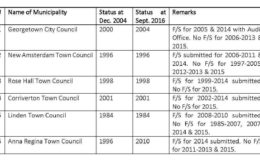
During the course of last week, we learnt that the Georgetown City Council was eleven years in arrears in having their accounts audited and reported on.

In our column of 23 January 2017, we had stated that the Cabinet erred in assigning the transactions audit of NICIL to the Auditor General because the latter had given a “clean bill of health” on the accounts of NICIL for the years in question.
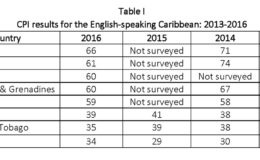
Corruption strangles people, communities and nations. It weakens education and health, undermines electoral processes and reinforces injustices by perverting criminal justice systems and the rule of law.
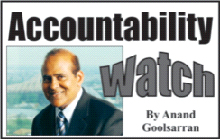
It is incumbent on the DPP to engage the services of special prosecutors whose knowledge, skills and reputation can match those who represent the interest of the accused.
Last week, we reflected on the state of cricket in the 1970s when, weather permitting, we could have watched some 26 games being played in Georgetown on a weekend among the four levels of cricket.
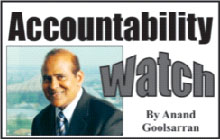
Mr. Speaker, I think it is safe to say that among the several contentious issues that have bedeviled us in this House, few have been as vexed and contentious as the issue of cricket administration.
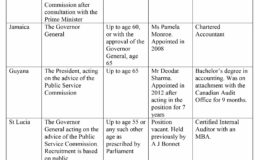
Before proceeding with today’s article, this column considers it unfortunate the way the present Administration has handled the matter concerning the leasing of the “Red House” to the Cheddi Jagan Research Centre Inc.
It is legally, morally and ethically wrong to deny payments to suppliers or contractors who, in good faith, have supplied goods and services or have satisfactorily executed works… In the final analysis, it is the taxpaying public that must come to the rescue of meeting the financial obligations of the Project which, with careful planning, and a highest possible degree of competitiveness, transparency and accountability, would have resulted in significant cost savings.
In our article of 5 December 2016, we had indicated that we would discuss the Report of the Public Accounts Committee (PAC) on the country’s accounts for the years 2010-2011.
Readers will recall that two Mondays ago, the Minister of Finance presented to the National Assembly the 2017 Estimates of Revenue and Expenditure in accordance with Article 218 of the Constitution.
One hopes that it will be a civilized one, and not one that degenerates into a ruckus or “fish market” scene.
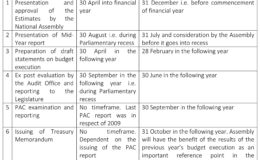
Today is Budget Day. It is an important day since it is the first time in the history of Post-Independence Guyana, and perhaps earlier, that we are having a budget for the fiscal year before the beginning of the year begins.
In our view, missing in the Public Service is a culture embodying a set of core values and standards which are accepted and treated as sacrosanct to the extent that their breach would evoke responses of criticism and even condemnation of violators and insistence that the “right” thing be done.

Last week, we had stated that the Report of the Commission of Inquiry into the Public Service, which was laid in the National Assembly on 24 May 2016, would have been debated by the Assembly.
We became aware of the dissatisfaction with the way the process is managed, the abandonment of the Selection Committee and the lack of transparency and fairness in the selection of awardees.
Two weeks ago, we carried out first article on the report of the Commission of Inquiry into the Public Service.
Every system of public accountability should embrace the following: (a) every act or action is done openly according to law and prudent judgment; (b) every actor is responsible for his or her action; (c) every act is documented and reported publicly; (d) every act or action is subject to independent, professional, non-partisan audit review and public reporting of the results; and (d) where the review shows that purposeful error has been made, prompt corrective action, including punishment where appropriate, is taken.
The ePaper edition, on the Web & in stores for Android, iPhone & iPad.
Included free with your web subscription. Learn more.